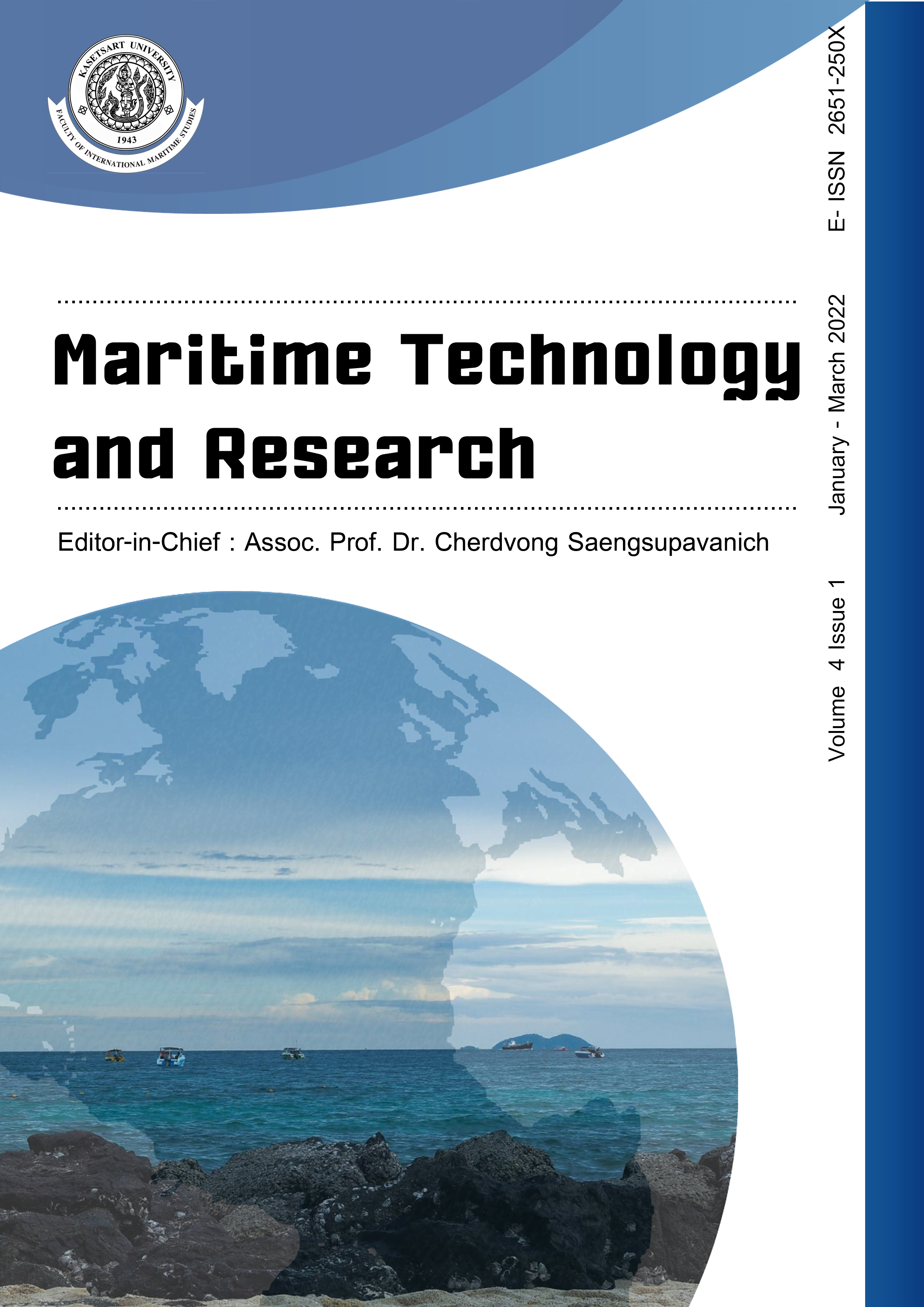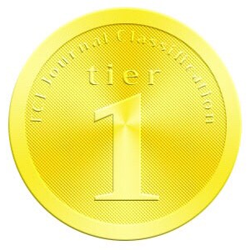The impact of the COVID-19 Pandemic on mental health among Marine Engineering students in Region VI, Philippines
DOI:
https://doi.org/10.33175/mtr.2022.250097Keywords:
Impact of the COVID-19 Pandemic, Mental health, Psychological problem, Depression, Anxiety, Stress, Marine Engineering students, University of AntiqueAbstract
The COVID-19 Pandemic has brought the world into a catastrophic situation. The Philippines is one of the nations that has been dramatically affected by this unseen and deadly virus. As early as March 2020, the country declared a nationwide lockdown that psychologically impacted the people. This descriptive-correlational study aimed at ascertaining the impact of the COVID-19 Pandemic on the mental health of Marine Engineering students. DASS-21 was adopted to assess depression, anxiety, and stress among 185 respondents. The computer-processed statistics used were mean and frequency for descriptive analysis; t-test was used for Independent Samples, and One-way ANOVA was used for inferential analysis. The Alpha level was set at 0.5. The study found that, generally, Marine Engineering students had mild signs of depression, moderate signs of anxiety, and normal signs of stress. There was no significant difference in terms of impact of the COVID-19 Pandemic on the Marine Engineering students’ mental health in terms of depression, anxiety, and stress when classified according to year level, place of birth, and location of residence. A psychological intervention program, “bUligAn and Naapektuhan ng Pandemya: A Psychological Intervention Program,” was formulated to address the impact of the COVID-19 Pandemic on the mental health of Marine Engineering students.
------------------------------------------------------------------------------
Cite this article: Galicia, P.R.B. (2022). The impact of the COVID-19 Pandemic on mental health among Marine Engineering students in Region VI, Philippines. Maritime Technology and Research, 4(1), 250097. https://doi.org/10.33175/mtr.2022.250097
------------------------------------------------------------------------------
References
Brooks, S. K., Webster, R. K., Smith, L. E., Woodland, L., Wessely, S., Greenberg, N., & Rubin, G. J. (2020). The psychological impact of quarantine and how to reduce it: A rapid review of the evidence. Lancet, 395(10227), 912-920. https://doi.org/10.1016/S0140-6736(20)30460-8
Department of Health. (2020). Beat COVID-19 today. Retrieved from https://bit.ly/BeatCOVID19PH
Finsterbusch, K. (1982). Psychological impact theory and social impacts. Impact Assessment, 1(4), 71-89. https://doi.org/10.1080/07349165.1982.9725491
Freud, S. (2003). An outline of psychoanalysis. Penguin, UK.
Galicia, P. R. B. (2020). Response measures toward COVID-19 among maritime students in the Province of Antique: Bases for a health intervention program. Hamdard Islamicus, 43(S1), 609-623.
Gay, L. R., Mills, G. E., & Airasian, P. W. (2018). Educational research: Competencies for analysis and applications. 9th eds. MyLab Education.
Gilbert, M., Pullano, G., Pinotti, F., Valdano, E., Poletto, C., Boëlle, P. Y., D’Ortenzio, E., Yazdanpanah, Y., Eholie, S. P., Altmann, M., Gutierrez, B., Kraemer, M. U. G., & Colizza, V. (2020). Preparedness and vulnerability of African countries against importations of COVID-19: A modelling study. Lancet, 395(10227), 871-877. https://doi.org/10.1016/S0140-6736(20)30411-6
Huang, Y., & Zhao, N. (2020). Generalized anxiety disorder, depressive symptoms, and sleep quality during the COVID-19 outbreak in China: a web-based cross-sectional survey. Psychiatry Research, 288, 112954. https://doi.org/10.1016/j.psychres.2020.112954
Joint Resolution Nos. 11 and 12. (2020). The inter-agency task force for the management of emerging infectious diseases. Retrieved from https://www.officialgazette.gov.ph/downloads/2020/03mar/20200313-MEMO-RRD.pdf
Khan, M. S. H., & Abdou, B. (2020). Flipped classroom: How Institutions of Higher Education (HEIs) of Bangladesh could move forward during Covid-19 pandemic. Retrieved from https://doi.org/10.2139/ssrn.3615400
Lovibond, S. H., & Lovibond, P. F. (1995). Manual for the depression anxiety and stress scale. 2nd eds. Sydney: Psychology Foundation.
Presidential Communications Operations Office. (2020). Opening statement of President Rodrigo Roa Duterte during the inter-agency task force briefing on COVID-19. Retrieved from https://pcoo.gov.ph/presidential-speech/opening-statement-of-president-rodrigo-roa-duterte-during-the-inter-agency-task-force-briefing-on-covid-19-march-9-2020
Proclamation No. 922. (2020). Declaring a state of public health emergency throughout the Philippines. Retrieved from https://www.officialgazette.gov.ph/2020/03/08/proclamation-no-922-s-2020
Proclamation No. 929. (2020). Declaring a state of calamity throughout the Philippines due to coronavirus disease in 2019. Retrieved from https://www.officialgazette.gov.ph/2020/03/16/proclamation-no-929-s-2020
Raosoft. (2004). Sample size calculator. Retrieved from: http://www.raosoft.com/samplesize.html
Seligman, M. E. (1974). Depression and learned helplessness. John Wiley & Sons.
Sim, K., & Chua, H. C. (2004). The psychological impact of SARS: A matter of heart and mind. Canadian Medical Association Journal, 170(5), 811-812. https://doi.org/10.1503/cmaj.1032003
Wang, C., Pan, R., Wan, X., Tan, Y., Xu, L., Ho, C. S., & Ho, R. C. (2020). Immediate psychological responses and associated factors during the initial stage of the 2019 coronavirus disease (COVID-19) epidemic among the general population in China. International Journal of Environmental Research and Public Health, 17(5), 1729. https://doi.org/10.3390/ijerph17051729
World Health Organization. (2020).WHO coronavirus disease (COVID-19) dashboard. Retrieved from https://covid19.who.int
Wu, P., Fang, Y., Guan, Z., Fan, B., Kong, J., Yao, Z., Liu, X., Fuller, C.J., Susser, E., Lu, J., & Hoven, C. W. (2009). The psychological impact of the SARS epidemic on hospital employees in China: Exposure, risk perception, and altruistic acceptance of risk. Canadian Journal of Psychiatry, 54(5), 302-311. https://doi.org/10.1177/070674370905400504
Downloads
Published
Issue
Section
License
Copyright (c) 2021 Maritime Technology and Research

This work is licensed under a Creative Commons Attribution-NonCommercial-NoDerivatives 4.0 International License.
Copyright: CC BY-NC-ND 4.0








